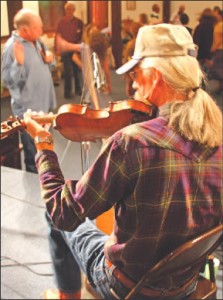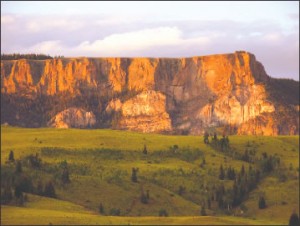Dear Editor,
I was pleased to read Kenneth Jessen’s article, Executive Order 9066: Misdirected Exercise of War Powers, in your March 2009 issue.
The mass incarceration of over 110,000 people (two-thirds of them U.S. citizens) during WWII, remains one of America’s greatest violations of civil liberties. And although I am happy to learn this lesson is taught at Grenada (Colorado) High School (and required in all California high schools), elsewhere the sad chapter of American history has been mostly forgotten.
By granting Army General DeWitt broad powers after Pearl Harbor, FDR’s Executive Order 9066 wrote a blank check to uproot families, businesses and entire communities. In a stunning suspension of the U.S. Constitution, Japanese Americans were removed from California, Oregon, Washington and parts of Arizona, and locked into 10 federal internment camps, including Amache in Colorado.
As noted in Jessen’s article, Ralph L. Carr was the only governor to offer his state as a new home to displaced West Coast Japanese Americans. Colorado voters “rewarded” him by voting him out of office.
In an effort to prove their loyalty, thousands of young men left their interned families and volunteered for the Army’s 442nd Regimental Combat Team. They fought in France and Italy and became the most decorated unit in U.S. military history. Six thousand additional Japanese Americans formed the Military Intelligence Service, fighting in secret in the Pacific Theater and working to establish a civilian government in post-WWII Japan.
President Reagan and the U.S. Congress issued a formal apology in 1988, but the stigma of incarceration dogs many former internees who won’t even discuss it with their children. Though no particular fan of Reagan, I still admire what may have been his finest speech, delivered as a young Army captain in 1944 at a ceremony honoring a fallen 442nd soldier:
‘’Blood that has soaked into the sands of a beach is all of one color. America stands unique in the world: the only country not founded on race but on a way, an ideal. Not in spite of but because of our polyglot background, we have had all the strength in the world. That is the American way.’’
Your readers can learn more about the human cost of the Internment by reading the outstanding new book, Kiyo’s Story: A Japanese American Family’s Quest for the American Dream, by Kiyo Sato, Soho Press, New York, 2009. And I’ve recently completed An American Story, a DVD presentation on the Japanese American Experience before, during and after WWII.
Tom Graves
San Francisco, Calif.



